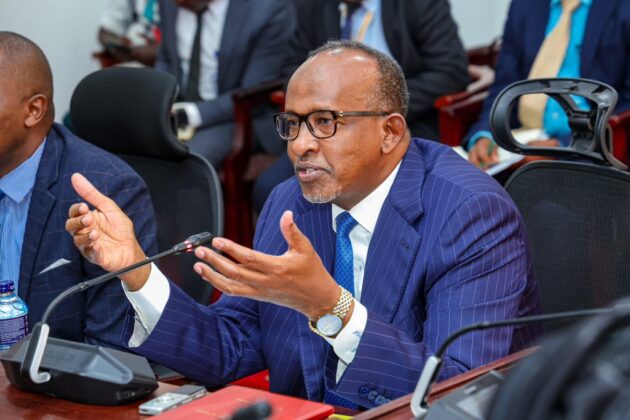
MoH orders audit of transplant facilities after Mediheal saga » Capital News
NAIROBI, Kenya, Apr 16 – The Ministry of Health has revealed that a probe into Eldoret’s Mediheal Hospital uncovered serious irregularities in kidney transplant procedures, exposing patients to significant risk and pointing to possible organ trafficking activities.
The revelations have prompted a directive for a nationwide audit of all transplant facilities.
Health Cabinet Secretary Aden Duale ordered an immediate audit of all seven licensed transplant centres in the country.
The findings followed a formal complaint from the Transplantation Society, which wrote to the Ministry on July 20, 2023, citing suspicious transplant activities involving foreign nationals at Mediheal.
According to the Ministry, the society warned that, “a potential syndicate [was] circumventing transplant regulations to facilitate transplants involving foreign nationals, particularly from Israel.”
In response, a multidisciplinary fact-finding team—comprising transplant surgeons, KMPDC officials, Kenya Blood and Transplant Transfusion Service (KBTTS) staff, ethicists, and university researchers—was dispatched to Mediheal Hospital in December 2023.
The team reported that Mediheal had conducted 372 kidney transplants over five years, yet several alarming trends emerged.
One key concern was the lack of adequate documentation to prove relationships between donors and recipients, especially in cases involving people of different nationalities.
“There was no sufficient evidence of the biological or close relationship between some donors and recipients,” MoH stated ins a statement on Tuesday.
It further noted that human tissue samples used for compatibility testing were sent to India without the necessary approval from the Ministry. This raised serious red flags about oversight and regulatory compliance.
The probe also found that transplants had been performed on high-risk patients, including individuals with advanced cancer and others with poor compatibility scores—a breach of international medical standards.
“These transplants should not have proceeded under any circumstances. They contravene best practices in transplant medicine,” a team member was quoted as saying.
Breaches
The hospital also lacked a multidisciplinary transplant committee, a crucial oversight body required for ethical transplant decision-making.
Further, morbidity and mortality data were either unavailable or poorly kept, making it impossible to assess long-term patient outcomes.
The Ministry expressed deep concern over language barriers, especially involving foreign recipients.
The absence of certified interpreters meant that the informed consent process was likely compromised.
“Informed consent is meaningless if the patient does not understand the language used,” the report emphasized.
More troubling was the observation that foreign nationals from countries with advanced transplant systems were coming to Kenya for procedures.
“This raises questions about why patients are bypassing their own countries’ systems to seek transplants in Kenya,” the report noted. “There is potential exploitation of regulatory gaps.”
In response to the findings, the Ministry has promised wide-ranging reforms including National Transplant Service Standards and Guidelines now awaiting validation.
A national policy and legal framework for regulating human tissues, blood, and organs is also ready for stakeholder review.
A follow-up audit is planned for Mediheal, and similar assessments will be conducted at the six remaining licensed transplant centres across the country.
The Ministry also announced plans to develop a National Transplant Registry to track all donor-recipient pairs.
It recommended that every transplant case be reviewed by a multidisciplinary committee including patient advocates and interpreters for foreign nationals.
The report also emphasized the need for thorough documentation of pre-transplant counselling and structured family conferences to ensure voluntary and informed participation.
Finally, the Ministry called on law enforcement agencies to investigate potential organ trafficking networks linked to these irregularities.
“This is a wake-up call,” the Ministry stated.
“We must urgently strengthen our oversight mechanisms to protect patients and ensure the integrity of our transplant system.”